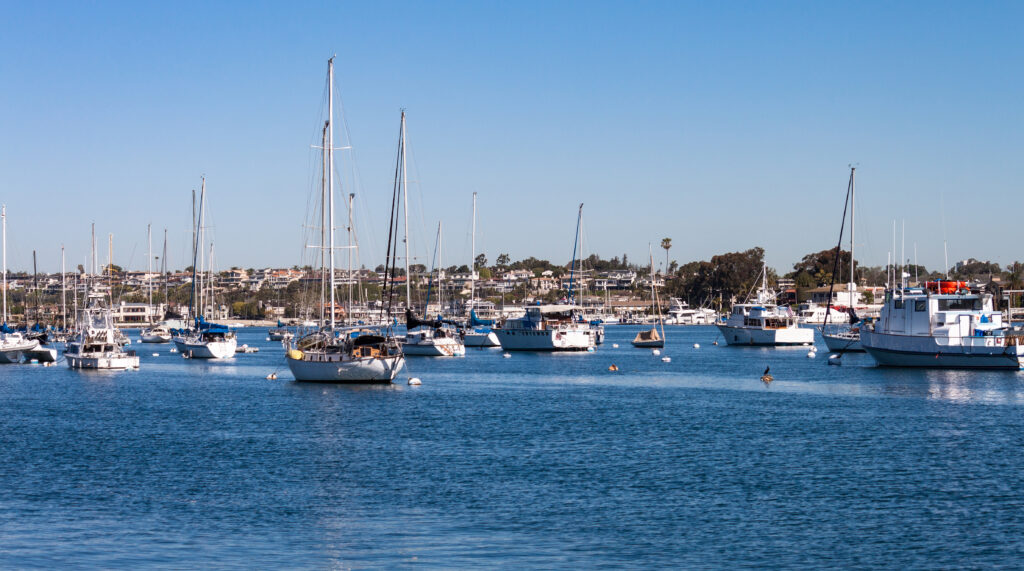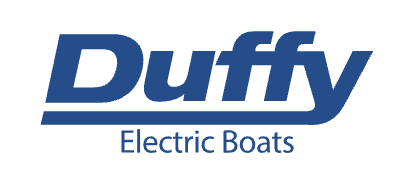Are you a novice boater eagerly anticipating your first voyage on the open water? Before you embark on your exciting boating adventure, prioritizing safety is paramount. In this all-encompassing guide, we will equip you with essential boating safety tips that are crucial for a pleasurable and incident-free experience. From familiarizing yourself with navigational regulations to ensuring your equipment is in optimal condition, our team of experts offers invaluable advice and practical suggestions to instill confidence as you navigate the waters. Prepare to embark on your boating journey well-prepared and secure, as we unveil the secrets to a safe and unforgettable experience. So, start the engine and hoist the sails as we embark together on this enlightening voyage of essential boating safety tips!
Boating Safety
When it comes to boating, prioritizing safety should always be at the forefront of your mind. One crucial measure that should never be overlooked is ensuring that everyone on board wears a life jacket. It is vital that each member of your crew has access to a well-fitting, U.S. Coast Guard-approved life jacket. The simple act of wearing a life jacket significantly increases the chances of survival in the event of a boating accident or capsize.
In addition to life jackets, it is essential to familiarize yourself with the various markers, buoys, and lights that dot the waterways. These aids play a crucial role in helping you navigate safely by indicating water hazards, channels, and safe routes. By understanding and respecting these navigational aids, you can avoid collisions and running around, ensuring a safer journey.
Responsible boating also entails adhering to speed limits, maintaining a safe distance from other vessels, and avoiding reckless maneuvers. By following these safety measures, you protect yourself and your passengers, contribute to a safer boating environment for everyone on the water, and enjoy a safe boating experience.
Local Boating Laws

As a responsible boater, it is essential to have a solid understanding of the local boating laws that govern the waters you’ll be navigating. Authorities put these laws in place to ensure the safety of boaters and others sharing the waterways. Familiarizing yourself with these regulations not only helps you operate your boat responsibly but also helps you avoid potential fines or penalties.
Local boating laws cover various aspects, such as:
- – speed limits
- – navigation rules
- – required safety equipment
- – restrictions on specific activities such as water skiing or wakeboarding
By familiarizing yourself with these laws, you can ensure that you are operating within the legal boundaries and prioritize the safety of yourself, your passengers, and other boaters.
It’s worth noting that local boating laws often go beyond safety considerations. They also aim to protect the environment and wildlife. For instance, guidelines on preventing pollution and maintaining proper boating etiquette may be included in these laws. By adhering to these regulations, you can contribute to the preservation of the marine ecosystem and enjoy a more sustainable and enjoyable boating experience.
It is recommended to obtain a copy of the local boating laws or consult with the relevant authorities to stay updated on any changes or specific requirements for your area. Taking the time to familiarize yourself with these laws demonstrates your commitment to responsible boating and ensures a safer and more enjoyable experience for everyone sharing the waterways.
Boating License Types
Boating licenses come in various types; understanding them is vital for boaters. These licenses or certifications serve as proof that a boater has acquired the necessary knowledge and skills to operate a boat. The specific types of boating licenses can vary depending on the jurisdiction. Common examples include:
- – basic boating licenses for recreational boaters
- – commercial boating licenses for those operating boats for hire
- – and specialized licenses for activities such as sailing or personal watercraft operation.
Individuals must complete a boating safety course or pass a written and practical exam to get a boating license. Having the appropriate boating license ensures that boaters possess the required skills. And knowledge to navigate waterways, reduce risks, and promote responsible boating practices.
Boating Education: Nurturing Safety and Responsibility
Boating education stands as a pillar in fostering boating safety and responsible practices on the water. By partaking in boating safety courses, individuals gain invaluable knowledge and training across various critical aspects of boating, with a particular emphasis on safety equipment.
These comprehensive programs delve into essential topics, enlightening boaters on properly using and maintaining crucial safety equipment. From life jackets and fire extinguishers to distress signals and navigation lights, boating education courses instill a deep understanding of the importance of these tools and how to employ them effectively in different situations.
Moreover, boating education goes beyond equipment usage. It strongly emphasizes proactive safety measures, risk management, and emergency preparedness. Through these courses, boaters acquire the skills and awareness to anticipate and mitigate potential hazards, ensuring a safe and enjoyable boating experience for themselves and others.
Individuals develop a comprehensive understanding of responsible boating practices by participating in boating education. They learn to assess risks, navigate waterways confidently, and make informed decisions prioritizing safety. Boating education acts as a catalyst for cultivating a culture of responsibility and respect for the water.
In addition to the practical skills acquired, boating education also fosters a sense of environmental stewardship. These programs often emphasize the importance of protecting fragile ecosystems, reducing pollution, and maintaining proper boating etiquette. By instilling these values, boaters become ambassadors for preserving the beauty and sustainability of our water resources.
Equipment and Maintenance
Safety equipment that boaters should have on board are:
- – Fire extinguishers – are essential for extinguishing fires that may occur on the boat. They should be accessible and in good working condition.
- – Distress signals – such as flares or emergency beacons, are crucial for alerting nearby vessels or rescue services in case of an emergency or when immediate assistance is needed.
- – Navigation lights – are essential for ensuring visibility of the boat’s position and direction. And status during low light or nighttime conditions, helping to prevent collisions.
- – Life jackets – are vital in providing buoyancy and keeping individuals afloat in case of an accident. Or when someone falls overboard. It is crucial to check the condition and functionality of life jackets and ensure that they are accessible.
- – First aid kit – should include aid kit items such as bandages, antiseptics, and adhesive tape. And any necessary medications specific to the boater’s needs or destinations.
- – Extra Batteries – for any electronic devices or equipment in the boat are also recommended. To ensure continuous functionality when needed
Participating in a free vessel safety check ensures that your boat meets safety standards. By ensuring the presence and proper maintenance of these safety equipment items. Boaters can enhance their safety on the water and be prepared to handle unexpected situations effectively.
Environmental Considerations
Boaters hold a vital role in safeguarding the environment and minimizing the impact of their activities on our precious waterways. It is essential to raise awareness about the environmental considerations of boating and promote eco-friendly practices for a sustainable future.
Boating, if not conducted responsibly, can have adverse effects on the environment. Water quality can be compromised, wildlife habitats can be disturbed, and pollution can increase. However, by adhering to eco-friendly boating practices, we can mitigate these impacts and preserve the natural beauty of our water resources.
By embracing eco-friendly boating practices, boaters can make a significant positive impact on the environment. Together, we can preserve the natural beauty of our waterways, protect wildlife habitats, and ensure future generations can enjoy the wonders of boating in harmony with nature.
Boating Etiquette
Boating etiquette serves as the cornerstone of a respectful and enjoyable boating community. It is imperative to understand and adhere to specific guidelines that promote safety and enhance the overall boating experience for everyone involved. By practicing boating etiquette, boaters can foster a harmonious environment, preserve natural habitats, and uphold the spirit of good sportsmanship while relishing their time on the water.
One essential aspect of boating etiquette is minimizing disturbances caused by excessive noise. When starting the engine or operating machinery, boaters should aim to do so without creating unnecessary noise that may disrupt nearby boaters and shoreline residents. Respecting the tranquility of the waterways adds to the overall enjoyment for everyone.
Observing no-wake zones and adhering to appropriate speed limits is another crucial element of boating etiquette. No-wake zones are designated areas where boaters are required to operate at reduced speeds, minimizing the impact of their wake on other vessels, shoreline structures, and delicate ecosystems.
Showing courtesy towards fellow boaters is a fundamental aspect of boating etiquette. By demonstrating consideration and respect for others on the water, boaters contribute to a more harmonious and cooperative boating community.
Furthermore, boating etiquette extends beyond interactions with other boaters. It also encompasses responsible behavior that helps preserve the natural beauty of our waterways. By upholding these practices, boaters contribute to the conservation of the marine ecosystem and ensure its preservation for future generations.
You Might Also Like
Duffy Boat Owner Must-Have Items Checklist
6 Important Questions To Ask When Buying A Boat
Boating Safety Tips: Six Ways To Stay Safe
Duffy for Sale: Beginner’s Guide When Buying a Boat
Electric Boat Rentals in Newport Beach
Most Useful Boat Buying Guide for Newbies
Why Duffy Boats are the Best Electric Boats for Sale on the Market
Electric Boat Company | The First & Finest Duffy Boats
A Romantic Way For A Marriage Proposal | Duffy Boats
Electric Boat for Sale | Start A Boat Rental Business
Electric Boats for Lakes Enthusiast: Outdoor Adventure
Boost Your Team’s Bonding with Fun Outdoor Activities for Team Building on Duffy Boats

